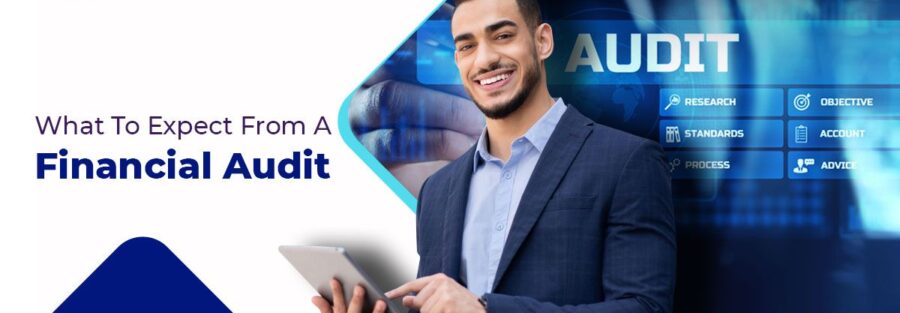Modern businesses strive to ensure transparency, accuracy, and compliance in financial reporting. A financial audit serves as a critical tool to achieve these objectives. As a business owner or financial executive, understanding what to expect from a financial audit is crucial to not only meet regulatory requirements but also enhance trust and credibility among stakeholders. Before you look for the best financial audit service provider in UAE, here’s an outline of the key aspects of a financial audit, providing businesses with insights to effectively navigate the audit process.
Preparing for the Audit:
The journey of a financial audit begins with thorough preparation. It involves gathering and organizing financial data, documents, and records. Businesses should ensure that their accounting practices align with recognized accounting principles, providing a solid foundation for the audit. The preparation phase includes:
- Financial Documentation: Compile financial statements, ledgers, balance sheets, income statements, cash flow statements, and any other relevant financial records. These documents should be accurate, up-to-date, and reflective of the business’s financial health.
- Internal Controls: Review internal controls and processes that govern financial transactions. Effective internal controls help prevent errors, fraud, and inconsistencies in financial reporting.
- Reconciliation: Reconcile bank statements, accounts payable, and accounts receivable with corresponding records to identify any discrepancies.
- Documentation of Policies: Ensure that accounting policies are well-documented and consistently followed. This documentation aids auditors in understanding the business’s financial practices.
Engaging with Auditors
Selecting a reputable and experienced auditing firm is pivotal. When engaging with auditors, businesses can expect:
- Audit Planning: Auditors will outline the scope, objectives, and timelines of the audit. This includes understanding the business’s industry, operations, and risk factors.
- Information Requests: Auditors will request access to financial records, policies, and internal controls. Businesses should promptly provide accurate and complete information to facilitate the audit process.
- Audit Methodology: Auditors employ a systematic approach to assess financial statements. This includes substantive testing, analytical procedures, and evaluation of internal controls.
Conducting the Audit
The audit itself involves a thorough examination of financial records and transactions:
- Substantive Testing: Auditors will perform detailed testing of transactions, account balances, and assertions to verify their accuracy. This may involve sample testing or a comprehensive examination.
- Analytical Procedures: Auditors compare current financial data with historical data, industry benchmarks, and forecasts to identify unusual trends or discrepancies that require further investigation.
- Internal Control Evaluation: Auditors assess the effectiveness of internal controls in preventing errors and fraud. Weaknesses in controls may be highlighted for improvement.
Addressing Audit Findings
Upon completing the audit, auditors will communicate their findings to the business:
- Audit Reports: Auditors provide an audit report detailing their opinion on the fairness of the financial statements. A “clean” opinion indicates that the financial statements are accurate and comply with accounting standards.
- Management Letter: On top of the audit report, auditors may issue a management letter. This letter includes recommendations for improving internal controls, operational efficiency, and financial reporting processes.
Post-Audit Steps
Once the audit is complete, businesses should take certain steps to capitalize on the audit process:
- Implement Recommendations: Address the suggestions provided in the management letter to enhance internal controls and operational effectiveness.
- Stakeholder Communication: Share the audit report with stakeholders to bolster transparency and confidence. This may include investors, creditors, regulators, and customers.
- Continuous Improvement: Treat the audit as a learning opportunity. Use the insights gained to refine financial processes, strengthen controls, and improve compliance.
A financial audit is a collaborative effort between a business and auditors to ensure the accuracy and transparency of financial reporting. Your business can derive substantial benefits like increased stakeholder trust, improved internal controls, and a better understanding of financial operations. As a best financial audit service provider in UAE, RNG Auditors is here to ease your burden. Get in touch with us.


